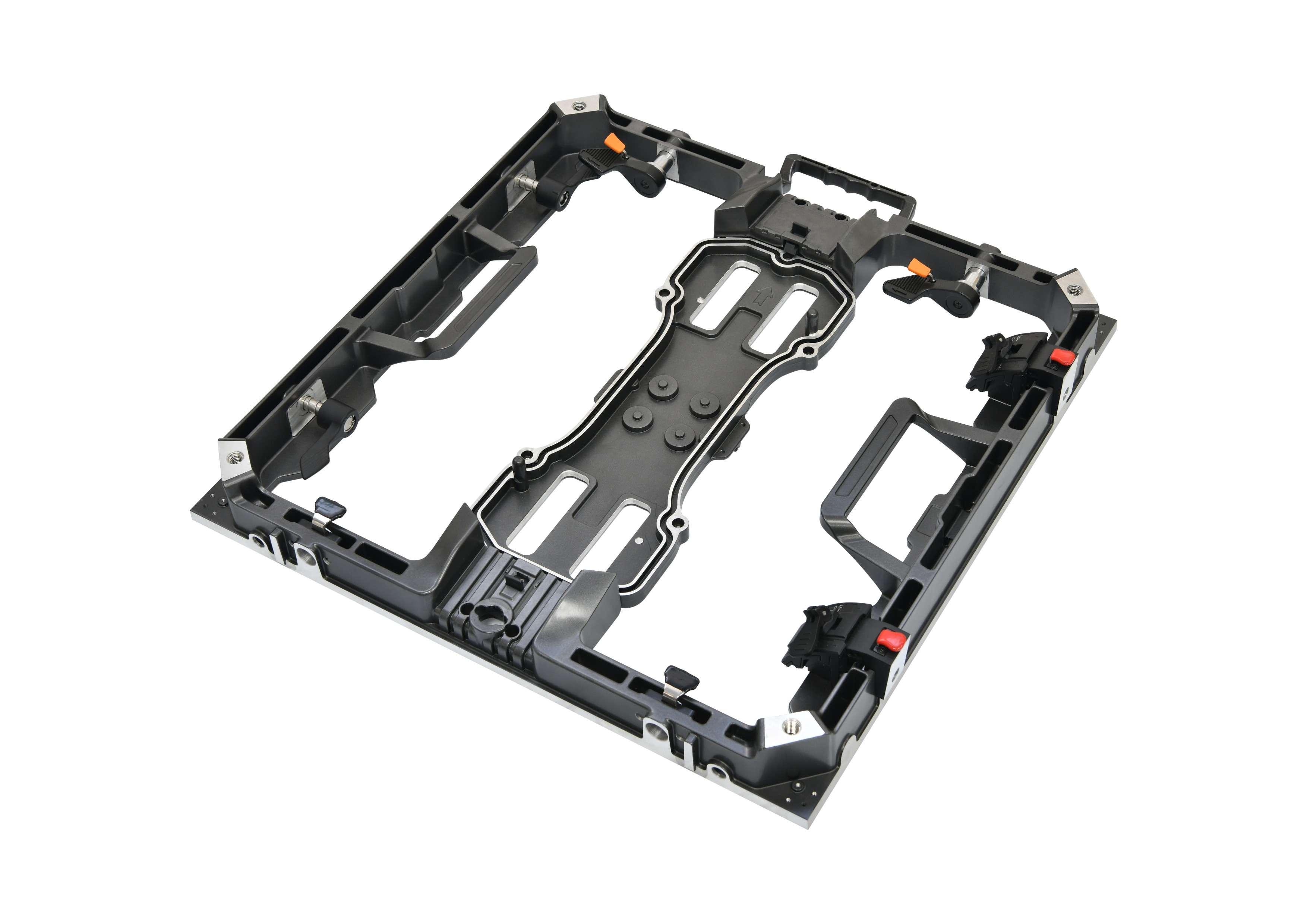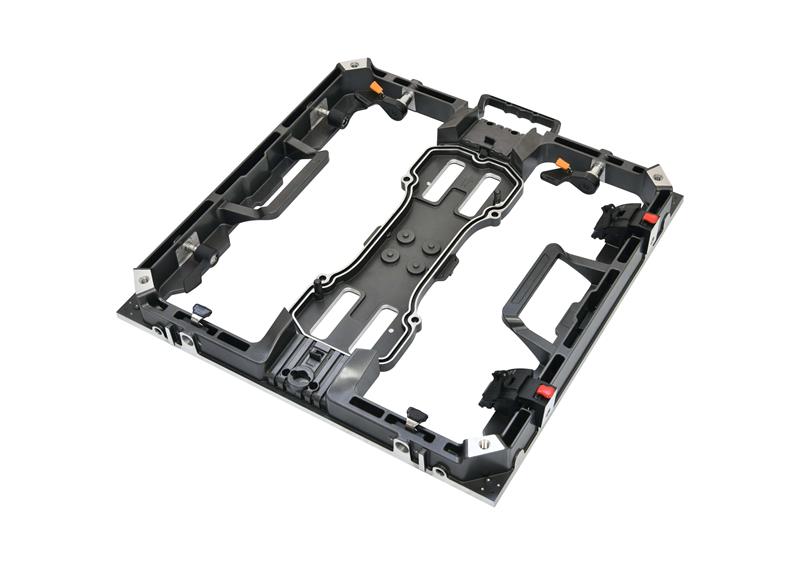

Custom Milled Aluminum refers to precision-machined aluminum components tailored to specific design requirements. Using CNC (Computer Numerical Control) milling, manufacturers shape raw aluminum into complex geometries with tight tolerances. This process ensures high accuracy, durability, and lightweight properties, making it ideal for aerospace, automotive, and industrial applications. Custom milling allows for unique finishes, such as anodizing or powder coating, enhancing corrosion resistance and aesthetics. The versatility of aluminum enables cost-effective prototyping and mass production of parts like enclosures, brackets, or custom fittings. Its excellent strength-to-weight ratio and machinability make it a preferred choice for engineered solutions.

Custom Milled Aluminum: Precision Engineering for Demanding Applications
Custom milled aluminum components offer unparalleled performance and versatility for industrial, aerospace, and automotive applications. Here are 6 key characteristics with technical specifications:
1. Exceptional Strength-to-Weight Ratio
With a typical tensile strength of 70-700 MPa (depending on alloy grade), milled aluminum provides structural integrity while maintaining a density of just 2.7 g/cm³ - approximately 1/3 the weight of steel.
2. Tight Dimensional Tolerances
CNC milling achieves precision down to ±0.005" (0.127mm) for standard parts, with high-precision machining capable of ±0.0005" (0.0127mm) tolerances for critical applications.
3. Superior Surface Finish Options
Surface roughness can be controlled from 32-125 µin Ra (0.8-3.2 μm Ra), with optional post-processing achieving mirror finishes below 8 µin Ra (0.2 μm Ra).
4. Thermal Conductivity Advantages
Aluminum alloys offer thermal conductivity ranging from 120-240 W/m·K, making them ideal for heat dissipation in electronic enclosures and thermal management systems.
5. Corrosion Resistance
Anodized coatings (5-25μm thickness) increase surface hardness to 60-70 Rockwell C while providing excellent corrosion resistance (1000+ hours in salt spray testing per ASTM B117).
6. Complex Geometries
5-axis CNC machining enables production of intricate components with wall thicknesses as low as 0.020" (0.5mm) and aspect ratios up to 30:1 for lightweight structural elements.
These engineered characteristics make custom milled aluminum the material of choice when performance, precision, and weight savings are critical requirements.
1. Aerospace Components
Custom milled aluminum is widely used in aerospace for lightweight, high-strength parts like aircraft frames, engine components, and landing gear. Its corrosion resistance and durability make it ideal for extreme conditions. Precision CNC milling ensures tight tolerances for critical safety applications.
2. Automotive Performance Parts
High-performance vehicles utilize milled aluminum for engine blocks, suspension systems, and custom body panels. The material’s heat dissipation properties enhance efficiency, while CNC machining allows for complex geometries in aftermarket upgrades and OEM manufacturing.
3. Medical Equipment
Surgical tools, imaging devices, and prosthetics benefit from aluminum’s sterilizability and non-magnetic properties. Custom milling creates biocompatible, lightweight components with smooth finishes to meet stringent hygiene standards.
4. Consumer Electronics
Smartphone casings, laptop chassis, and drone frames leverage aluminum’s sleek aesthetics and EMI shielding. CNC milling achieves ultra-thin designs with structural integrity, while anodizing provides customizable colors and scratch resistance.
5. Industrial Robotics
Robotic arms and automation systems rely on milled aluminum for joints and actuators due to its fatigue resistance and machinability. Tight-tolerance parts ensure seamless motion control in manufacturing and logistics applications.
6. Defense & Military Hardware
From firearm components to armored vehicle parts, aluminum offers ballistic protection without excessive weight. CNC milling enables ruggedized designs for night-vision mounts, communication housings, and UAV structures.
FAQs About Custom Milled Aluminum
Q: What is custom milled aluminum?
A: Custom milled aluminum refers to aluminum parts precision-machined using CNC milling to meet specific design requirements.
Q: What industries use custom milled aluminum?
A: Aerospace, automotive, robotics, and consumer electronics rely on it for lightweight, durable components.
Q: What are the benefits of CNC milling for aluminum?
A: High accuracy, repeatability, and the ability to create complex geometries with tight tolerances.
Q: Which aluminum alloys are best for milling?
A: 6061 and 7075 are popular for their machinability, strength, and corrosion resistance.
Q: How does surface finishing enhance milled aluminum?
A: Anodizing or powder coating improves aesthetics, durability, and corrosion resistance.
Q: Can custom milled aluminum replace steel parts?
A: Yes, when weight reduction is critical while maintaining sufficient strength-to-weight ratio.
Custom Milled Aluminum: Precision Engineering for Demanding Applications
Custom milled aluminum components offer unparalleled performance and versatility for industrial, aerospace, and automotive applications. Here are 6 key characteristics with technical specifications:
1. Exceptional Strength-to-Weight Ratio
With a typical tensile strength of 70-700 MPa (depending on alloy grade), milled aluminum provides structural integrity while maintaining a density of just 2.7 g/cm³ - approximately 1/3 the weight of steel.
2. Tight Dimensional Tolerances
CNC milling achieves precision down to ±0.005" (0.127mm) for standard parts, with high-precision machining capable of ±0.0005" (0.0127mm) tolerances for critical applications.
3. Superior Surface Finish Options
Surface roughness can be controlled from 32-125 µin Ra (0.8-3.2 μm Ra), with optional post-processing achieving mirror finishes below 8 µin Ra (0.2 μm Ra).
4. Thermal Conductivity Advantages
Aluminum alloys offer thermal conductivity ranging from 120-240 W/m·K, making them ideal for heat dissipation in electronic enclosures and thermal management systems.
5. Corrosion Resistance
Anodized coatings (5-25μm thickness) increase surface hardness to 60-70 Rockwell C while providing excellent corrosion resistance (1000+ hours in salt spray testing per ASTM B117).
6. Complex Geometries
5-axis CNC machining enables production of intricate components with wall thicknesses as low as 0.020" (0.5mm) and aspect ratios up to 30:1 for lightweight structural elements.
These engineered characteristics make custom milled aluminum the material of choice when performance, precision, and weight savings are critical requirements.
1. Aerospace Components
Custom milled aluminum is widely used in aerospace for lightweight, high-strength parts like aircraft frames, engine components, and landing gear. Its corrosion resistance and durability make it ideal for extreme conditions. Precision CNC milling ensures tight tolerances for critical safety applications.
2. Automotive Performance Parts
High-performance vehicles utilize milled aluminum for engine blocks, suspension systems, and custom body panels. The material’s heat dissipation properties enhance efficiency, while CNC machining allows for complex geometries in aftermarket upgrades and OEM manufacturing.
3. Medical Equipment
Surgical tools, imaging devices, and prosthetics benefit from aluminum’s sterilizability and non-magnetic properties. Custom milling creates biocompatible, lightweight components with smooth finishes to meet stringent hygiene standards.
4. Consumer Electronics
Smartphone casings, laptop chassis, and drone frames leverage aluminum’s sleek aesthetics and EMI shielding. CNC milling achieves ultra-thin designs with structural integrity, while anodizing provides customizable colors and scratch resistance.
5. Industrial Robotics
Robotic arms and automation systems rely on milled aluminum for joints and actuators due to its fatigue resistance and machinability. Tight-tolerance parts ensure seamless motion control in manufacturing and logistics applications.
6. Defense & Military Hardware
From firearm components to armored vehicle parts, aluminum offers ballistic protection without excessive weight. CNC milling enables ruggedized designs for night-vision mounts, communication housings, and UAV structures.
FAQs About Custom Milled Aluminum
Q: What is custom milled aluminum?
A: Custom milled aluminum refers to aluminum parts precision-machined using CNC milling to meet specific design requirements.
Q: What industries use custom milled aluminum?
A: Aerospace, automotive, robotics, and consumer electronics rely on it for lightweight, durable components.
Q: What are the benefits of CNC milling for aluminum?
A: High accuracy, repeatability, and the ability to create complex geometries with tight tolerances.
Q: Which aluminum alloys are best for milling?
A: 6061 and 7075 are popular for their machinability, strength, and corrosion resistance.
Q: How does surface finishing enhance milled aluminum?
A: Anodizing or powder coating improves aesthetics, durability, and corrosion resistance.
Q: Can custom milled aluminum replace steel parts?
A: Yes, when weight reduction is critical while maintaining sufficient strength-to-weight ratio.